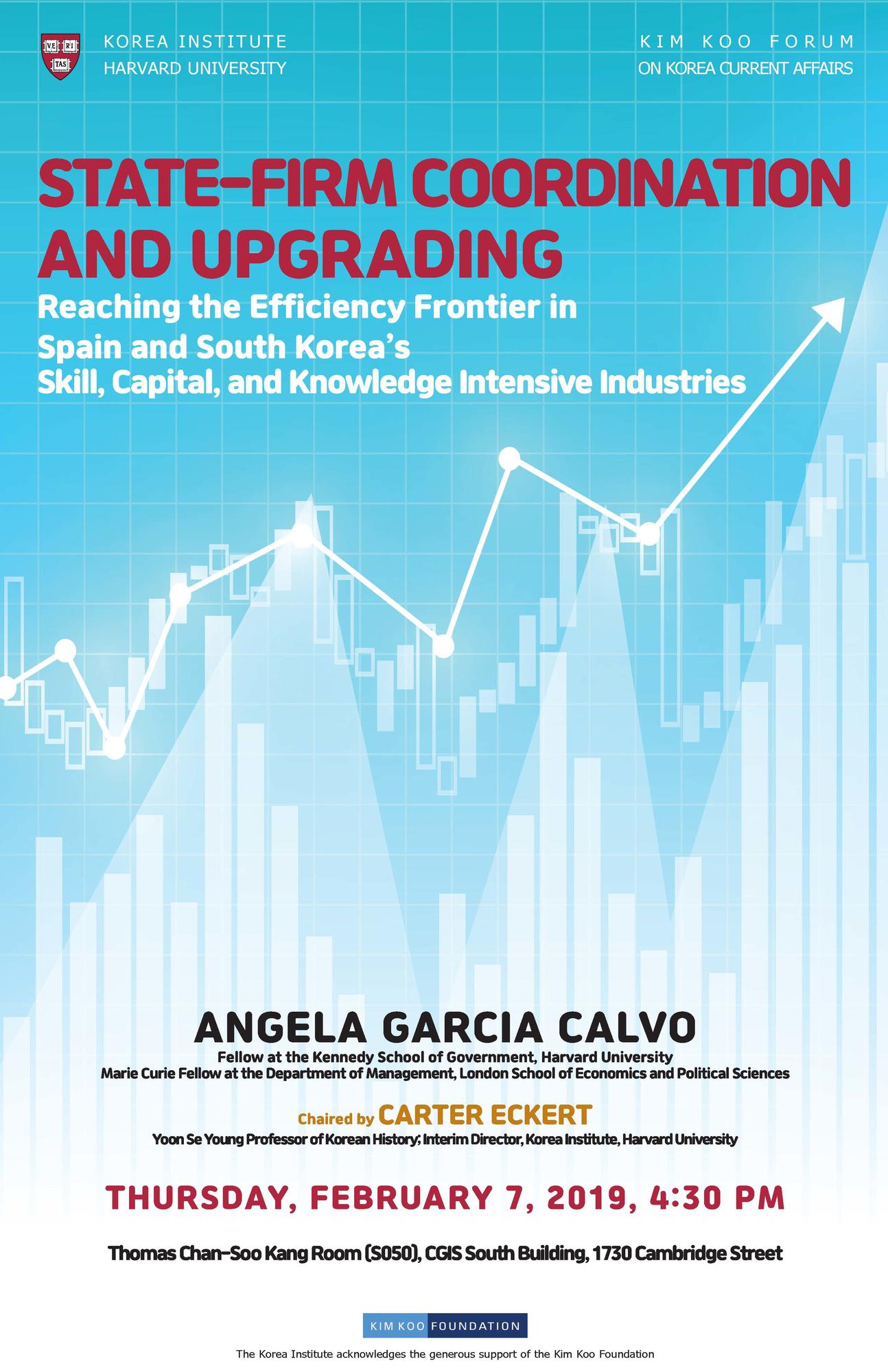Date:
Location:

Fellow at Harvard Kennedy School of Government and Marie Curie fellow at the Department of Management,
Dr. Angela Garcia Calvo is a Fellow at Harvard Kennedy School of Government and a Marie Curie post-doctoral
Her current research investigates how interactions between large firms and governments change over time and
She holds a PhD in Political Economy from the London School of Economics and Political Sciences (2014),
In addition to her academic work, she has worked for the Organization for Economic Cooperation and
Chaired by Carter Eckert, Yoon Se Young Professor of Korean History, Harvard University
Abstract:
Generating sustainable economic development and reaching advanced economy status depends
on the ability of countries to host local, globally competitive firms in skill-, capital-, and technology
intensive industries. However, in the last four decades, very few countries have managed to do so.
How did they reach the efficiency frontier? And what types of institutional structures supported the
process? Explanations based on firm competition and upwards movement within global value chains
underestimate the difficulties of reaching the highest echelons of the global division of labor. Alternative
arguments based on state activism are anchored on the institutional configurations that enabled a few
Asian economies to industrialize in the pre-1980s era.
This research project uses evidence from Spain’s and Korea’s transformation since the mid-1980s to
ask whether state activism remains necessary to foster economic transformation at high levels of
complexity and if so, what types of transformational strategies are likely to be effective and whether
they are equifinal. Spain and Korea provide fertile ground for this analysis. The two countries’ rapid
industrializations in the 1960s and 1970s transformed two poor backward economies with scarce
natural resources into industrialized ones. By the 2010s, both countries hosted globally competitive
firms in some skill-, capital-, and knowledge-intensive industries. However, they did so through
different strategies. Spain undertook a horizontal or cross-sector approach under which firms in
complex services such as banking and telecommunications reached the efficiency frontier while
manufacturing capacity declined sharply. By contrast, Korea pursued a vertical or product-based
upgrading strategy consisting of moving upward within the value chains of existing manufacturing
sectors such as electronics and motor vehicles while most services remained underdeveloped and
underperforming.
The project uses evidence from detailed qualitative case studies of three industries: information and
communication technologies, banking, and the automotive industry, to argue that state-firm coordination
is still a critical feature of economic transformation. However, coordination has shifted from classic
hierarchical structures to no-hierarchical models in which states and firms exercise control over their
decisions and develop mutually agreed-upon working rules that enable them to reach beneficial outcomes.
Such agreements may be articulated through a variety of institutional configurations depending on the
identities, capabilities, backgrounds and specializations of firms and national governments, and on the nature
of external linkages or interactions with other nations leading to alternative pathways to upgrading. These
pathways will likely provide support for different patterns of production specialization. The project therefore
confirms the need for activist states to support economic development even at high levels of complexity
and engages with on-going debates regarding the role of states in shaping production structures and
economic transformation in a global economy






